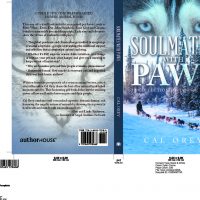After working the whole day, most of us tend to flop in an easy chair or bed and zone out in front of the television or maybe spend hours surfing the net, playing online games, watching random YouTube videos, or chatting on multiple social network platforms. These activities aren’t always bad. Some amount of mindless activity is helpful for coping with stress. But when we spend too much time on them, they become addictions.
Soft addictions
By definition, addiction means being psychologically and physically dependent on something. The term ‘soft addiction’ is fairly new. Soft addiction is a behavioural addiction, which means compulsively engaging in some kind of activity or behaviour. Unfortunately, this behaviour drags us from our me-time, saps our energy, numbs our feelings and mutes our consciousness.

Simply put, a soft addiction is a bad habit, and like any addiction, these habits too, keep us from living a satisfying, happy and meaningful life.
A soft addiction is hard to recognise, as it creeps upon us stealthily and slowly takes control. It’s a seemingly harmless habit, a thing we overdo without realising that we’re doing so.
The keyword here is ‘overdo’. We’ve been taught since childhood that excess of anything is bad – well, it’s the same principle. Excess of a harmless activity becomes harmful, turning into a soft addiction, disconnecting us from the present.
Our family members, friends or co-workers are generally the first ones to notice the change in our behaviour due to a soft addiction. If people are teasing us about our spending more and more time on chats with friends, or on social media in general, then it’s definitely an indication of a soft addiction.
We also need to pay attention to our own instincts, our feelings that tell us when we are distracted from our life path. Self-awareness and self-regulation help us to identify and heal our soft addictions.
Tracking behaviour
We must note down what we are doing and when. What is the exact state of our mind when we are glued in front of the television, chatting with friends for long, going to the shops again and again, cleaning or tidying up obsessively, or snacking excessively? We must analyse the psychological hunger that we are trying to feed with these soft addictions.
Minding thoughts
We must take an inventory of our thoughts. What are the thoughts that make us restless, the negative beliefs that trigger soft addictions within us? We must address these thoughts and replace them with kindness and self-compassion.
Withdrawing and refocusing
Once we have identified our soft addiction, we have to start the process of withdrawing from it. We can start by controlling the time spent on it, for example, consciously limiting the number of hours spent on social media or limiting the number of days for shopping and so on.

Considering we would have leftover time from our addictions now, we would have to find alternative activities to utilise it. These options should be engrossing and interesting to us and not feel like impositions, otherwise we would not be able to wean ourselves away from our soft addictions at all.
Soft addictions are a result of unfocused thought patterns. In order to overcome these addictions, one needs to focus on directing the thoughts towards some creative work or our life’s vision. Developing a hobby, even in the later years of life, is very helpful to some, while journaling regularly is cathartic to others. These activities help re-focus and direct our thoughts towards our life’s goal or vision.
Soft addictions are nothing but not taking care of our deep emotional hunger. So, we need to feed this emotional hunger with more soulful connections. The more meaning we add to our life, the less we are attracted to soft addictions.
A soft addiction is an ‘addiction’ at the end of the day. Like any other addiction, it is helped by spending more time with family, seeking support from them. A counsellor, life coach or therapist can also help in overcoming soft addictions.
 Sunita Pant Bansal hails from the Kumaon hills of the Himalayas, a region well-known for its crop of litterateurs. Her forte is decoding Hindu scriptures to show their relevance and application in today’s times. In her four decades of writing career, Sunita has authored hundreds of books for children and young adults on folk literature and mythology. For adults, her genres cover body, mind and soul.
Sunita Pant Bansal hails from the Kumaon hills of the Himalayas, a region well-known for its crop of litterateurs. Her forte is decoding Hindu scriptures to show their relevance and application in today’s times. In her four decades of writing career, Sunita has authored hundreds of books for children and young adults on folk literature and mythology. For adults, her genres cover body, mind and soul.







